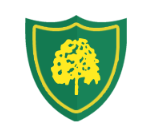Year 1JW
Welcome to Year 1JW Class Page, the place for you to find out all the amazing things that have and will be happening in your class this year.
So click on each of the headings to find out more information about the given topics.
Your Class Teachers
Mrs Walton is your class teacher this year.
Our teaching assistants this year are Mrs Harrison on a Monday and Tuesday and Mrs Chaisty Wednesday to Friday.
PE
PE will take place on Monday for musical theatre and Friday for gymnasticsinvasion games this term.
For PE sessions please bring the following:
- Black shorts, leggings or jogging bottoms
- White t-shirt or polo shirt
- Black pumps or trainers
It is usually best to leave your child's PE kit in school for the half-term so that it is always available to use.
Please ensure every item is clearly named.
Reading
It is important that your child brings their reading book into school each day as the days on which they will be able to read with an adult may change from time to time. It is also crucial that you listen to your child read each evening and ensure that you sign their reading record highlighting what they have read and how they performed.
Within this class reading records will be checked and books changed on a Wednesday.
The children will bring home a book bag book linked to their RWI group and an independent reading book.
Homework
Homework will be set on a Tuesday through our online learning platform, SeeSaw. A link for which is placed below:
All homework should be completed by the following Monday and will be checked by your teacher on this day. Please make sure that if you are having difficulties with the homework, that you contact your class teacher with plenty of time so that they can assist your child in its completion. In addition, the school also run a homework club which can really help support those children that struggle completing their tasks independently.
Curriculum
Topic - The Seaside
As Mathematics we will be able to:
- Count in 2's
- Count in 10's
- Count in 5's
- Recognise equal groups
- Add equal groups
- Make arrays
- Make doubles
- Make equal groups - grouping
- Make equal groups - sharing
- Recognise a half of an object or a shape
- Find a half of an object or a shape
- Recognise a half of a quantity
- Recognise a quarter of an object or a shape
- Find a quarter of a quantity
As Writers we will be able to:
Our focused story will be Who swallowed Stanley?
• Say out loud what is going to be written about
• Sequence sentences to form short narratives
• Re-read what they have written and check that it makes sense
• Discuss what has been written with the teacher or other pupils
• Read writing aloud clearly enough to be heard by peers and the teacher
• Spell words containing phonemes already taught
• Spell common exception words
We will also be focusing on Set 2 and Set 3 sounds in preparation for our phonics test.
As Scientist we will be able to:
- To identify and group animals.
- To describe a variety of animals.
- To compare the features of animals.
- To identify animals that are carnivores, herbivores and omnivores.
- To research using non-fiction texts.
- To recognise animals that make suitable pets.
- To gather and record data to help in answering questions.
- To describe and compare the structure of animals.
- To know about famous scientists throughout history.
As Artists, we will:
- Learn about the famous artist Eileen Downes.
- Sort and group materials for different purposes.
- Describe differences and similarities between two artists.
- To cut, fold, overlap and tear materials to create an image.
- To design, make and evaluate a collage inspired by Eileen Downes and the seaside.
As Design Technicians, we will:
- Investigate our design problem and develop our brief.
- Practise the skills of cutting, joining and decorating fabrics.
- Design our new product (puppet) to meet the criteria in the design brief.
- To create our new product (puppet) using our skills and following the design.
- To evaluate our puppet.
As Geographers we will:
- know that the United Kingdom is an island surrounded by water.
- recap on the countries of the United Kingdom and their capital cities
- use maps of the United Kingdom and atlases to identify and locate the coastline and coastal towns around the United Kingdom.
- identify the coastal towns closest to our home city of Manchester on a map of the UK.
- identify and name human and physical features we would find at a seaside resort.
- compare Timperley and Southport by looking at photographs, maps, aerial views and conducting independent internet research on Southport and Timperley.
- complete a fieldwork study of the coastal town of Southport identifying geographical features. We will create a landscape and soundscape map using compass direction of Southport beach and promenade.
As Historians we will:
- Learn about seaside holidays from the past.
- Understand why seaside holidays were important to Victorians and why they are still important today.
- Learn What Victorian children did for entertainment at the seaside.
- Compare how seaside holidays have changed over time.
- Understand how holidays in the past have influenced holidays today.
